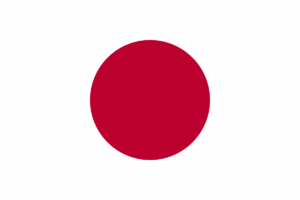
Photo: Cayman Compass, James Whittake
Cayman Compass - Privy Council rules against secret trial for exiled killers
- DPP in the Media
- 3 Mar 2023
This article was originally published in the Cayman Compass, by James Whittaker, 3 March 2023.
Lawyers for a gang killer deemed too dangerous to be held in Cayman claimed a “victory for open justice” on Friday after the highest court in the Overseas Territories ruled that officials cannot rely on secret evidence to justify his transfer to a maximum security prison in the UK.
The Judicial Committee of the Privy Council ruled there can be no behind-closed-door trials in the Cayman Islands under current law.
Exiled murderer Justin Ramoon is fighting to be returned to Cayman to serve his life sentence close to his family.

He was transferred off the island along with his brother Osbourne Douglas, his accomplice in the 2015 murder of Jason Powery, on the recommendation of then-Governor Helen Kilpatrick.
The brothers were said to be leading members of the Central Military Killers gang and were deemed a threat to national security.
In earlier hearings, Martyn Roper, who succeeded Kilpatrick as governor, testified that there was credible intelligence the pair were planning an armed escape from HMP Northward, potentially aided by hit-men smuggled into Cayman from Jamaica.
The brothers deny that they are gangsters and contest the credibility of this claim. They sought a judicial review of their transfer to the UK on human rights grounds.
After years of legal dispute, the Cayman Islands Court of Appeal ruled the hearing could be held behind closed doors, to allow the court to consider classified evidence withheld from Ramoon and his brother.
Neither Ramoon, his lawyers, nor the public would have been present or privy to the information presented by the government.
The Privy Council reversed that decision Friday, ruling that such trials – known as Closed Material Procedures – are not authorised in the Cayman Islands.
Though similar procedures do exist in the UK, they are primarily used for terror trials and are regulated through direct legislation.

The board of senior judges, who visited Cayman in November to hear submissions in the case, decided the brothers’ challenge should be heard in open court. The board ruled that a decision could – and should – be reached on the basis of evidence that could be disclosed in public and, crucially, to the prisoners themselves.
New hearing
Now the case will go back to the Grand Court of the Cayman Islands and a judge will be asked to determine if Ramoon should be returned to Cayman. It is not yet clear how Douglas, who was not involved in the challenge to the Privy Council, will be impacted by the decision.
Some of the evidence against the brothers has already been withheld from disclosure through a Public Interest Immunity Certificate amid concerns that it could threaten national security or endanger informants. But summaries of the ‘gist’ of that evidence have been disclosed in the form of affidavits from Roper and senior police and prison officials.
The Privy Council judges ruled that allowing a Closed Material Procedure to enable government to further demonstrate the threat posed by the two men would be a step too far.
Closed-door hearings, “involve a departure from the principles of open justice and natural justice, principles which are fundamental to the right to a fair trial,” they wrote in a 34-page ruling handed down in London on Friday.
No legislation exists in Cayman for such hearings and the board said it could not ‘invent’ a process.

“Such a step should be taken, if at all, by the legislature which is better placed than is the judiciary to assess the policy considerations relating to the necessity for such a procedure and the practicalities of its operation.”
Lawyers for the governor had argued that its case would be impacted, if it weren’t able to rely on the classified documents, suggesting the case would effectively be “untriable”. In those circumstances, they suggested, the case should be struck out and Ramoon and his brother should remain in the UK, with no legal recourse to contest the transfer.
But the Privy Council board ruled that a fair trial should be possible.
Their ruling states, “(The board) can see no unfairness in the appellant’s claim for judicial review proceeding to trial on the basis of the material which is now available.”
The Grand Court will now schedule a new hearing for Ramoon to contest his transfer to the UK.
‘Victory for open justice’
Prathna Bodden, of Samson Law, who represented Ramoon, welcomed the decision.
“This is a significant development in Mr Ramoon’s long-running battle challenging the decision that he serve his sentence in the United Kingdom,” she said.

“We welcome the Privy Council’s ruling that the government cannot hold secret hearings, without express authority. This is a victory for open justice and fairness in the courts of the Cayman Islands.”
The Judicial Committee of the Privy Council is the highest court of appeal for British Overseas Territories and some Commonwealth countries and the ruling has far reaching significance.
Saul Lehrfreund, of the UK-based Death Penalty Project, said it was an important decision in ensuring fair trial rights are protected.
“Excluding individuals from trials should only ever be a last resort. We are pleased that this decision will create a fairer and more transparent justice system.”

















